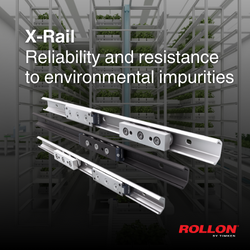While conventional plant cultivation practices cause climate change, deforestation, loss of biodiversity and ecosystem degradation, this is not the case with sustainable agriculture.
 Could Sustainable Agriculture be the Solution to Climate Change
Could Sustainable Agriculture be the Solution to Climate Change

Luis Rivera | Advanced LED Lights
What is Sustainable Agriculture?
Sustainable agriculture is a certain type of farming that meets the food supply needs of the present generation without negatively affecting the environment. This form of farming provides innovative, socially oriented, eco-friendly and economically viable solutions for the modern-day growers.
Agriculture as the Biggest Treat of the Planet
Unsustainable agriculture comes with imperative environmental consequences. Climate change is influenced by many factors, such as massive deforestation, degradation of ecosystems, biodiversity issues, and air, water and earth pollution. All of these crucial factors are a result of the conventional methods used in farming.
Sustainable Agriculture is the Key to Climate Change
Preservation of Earth’s natural resources is one of the main goals of sustainable agriculture. We depend on fresh air and clean water for survival, so we should not take the availability for granted.
Through applying alternative methods of plant cultivation, sustainable agriculture is considered a reasonable solution to climate change. The most important practices include water and soil health management, minimizing air pollution, and promotion of biodiversity.
Practices of Sustainable Agriculture
A farmer’s choice of traditional growing methods is crucial when it comes to affecting the environment. On the other hand, sustainable agriculture practices are reasonable, profitable and compliment nature.
Resource management
Energy
Conventional farming depends mainly on non-renewable energy sources. Those sources are causing disruptive effects on the environment. Unfortunately, the growers would not be able to cut them off entirely without causing either an economic or an ecological catastrophe.
Regarding the advantages of sustainable agriculture, the reliance on such non-renewable energy sources is vastly reduced or completely replaced with renewable ones.
Air
Air pollution is one of the most serious environmental problems caused by the farming industry. The quality of air is vitally affected by a lot of agricultural activities. Dust from tillage, pesticide spraying, and hazardous emissions from fertilizers are just a few non-sustainable agriculture examples.
In order to improve air quality and lower pollution levels, sustainable farming measures need to be taken. These may include adjusting the levels of tillage; covering crops to reduce dust; and incorporating crop residue into the soil as a fertilizer.
Water
There are also certain benefits of sustainable agriculture, with regard to water supply. Farmers are often faced with the problems of drought and pesticide contamination of surface and underground waters. Such issues related to the water quality and salinization cause vegetation complications, not to mention the negative effect on the ecosystem.
As a solution to those problems, sustainable agriculture aims to provide a drought-resistance system, optimally reduce usage of pesticides, improve conservation, and work on a better crop management and selection.
Crop Rotation and Planting a Variety of Crops
When it comes to variety selection, the benefits of diversified agriculture systems are way more environmentally and economically resilient than those of monocultural farms. Crop rotation can ensure a bright future of biodiversity.
Sustainable farming counts on a strict selection and wild variety of the produce. The goal is to eliminate the risk of dependence on a single type of crop. As an example, the loss of a plant in monoculture could lead to serious harm for the growers and their business.
Cover Crops Planting
One of the biggest challenges for the farming community is soil erosion and degradation. There is no doubt as to why horticulture farmers are spending so much time and energy on soil preservation and enhancement.
The most adequate sustainable methods include covering the soil with mulch or plants. Cover crops are used to heal eroded or depleted soil, as well as to increase the moisture and suppress weeds. Other soil healing practices include tillage reduction and stricter management of irrigation, nutrients and water supplies. Plants cultivated in a healthy soil are less vulnerable to pest invasion and show exceptional growth results.
Reducing Traditional Plowing
The reduction of traditional plowing can also reduce air pollution from diesel emissions and dust, while ensuring a minimum level of soil disturbances. Conservation tillage can be even more effective if combined with the practices of crop rotation and cover crops.
Organic Pest Control
In sustainable agriculture, there are many convenient ways to apply organic pest control. The most efficient methods include trap crops, companion planting and insect moderation.
Trap crops are planted with the sole purpose that they are more attractive to the pests than the crops you are growing, which are essentially saving your produce. Another practice is companion planting, which is a farming technique that includes different types of crops planted in proximity to one another. The goal is to increase productivity by managing space and applying pest control. Insect moderation is the practice of attracting beneficial insects to your farm. Some examples include ladybugs, ground beetles, lacewings and many more. These insects actually harm or feed on other insects that would love to destroy your produce.
Eco-friendly Grow Lights
LED grow lights are the best solution for artificial lighting in sustainable agriculture. Their heat emission is considerably lower than the other grow lights on the market. They are also energy efficient, totally adjustable and cost-efficient in the long term. The environmental advantages of LED grow lights help you increase your yield and take care of nature at the same time.
Keep Farm Animals and Plant Production Together
The social factor plays a big role in sustainable farming practices. Each person involved in application of the practices is contributing to the prosperity of the system, which is why it’s important to properly manage the animal and plant production.
In order to minimize the crucial agriculture effect on the environment, both animal farming and horticulture should be supplemental for each other.
Making a difference
With agriculture being one of the biggest threats to the ecosystem on Earth, what we can do is substitute the old farming habits with new ones. If you are willing to make a difference and stop climate change, you can participate in sustainable agriculture by acquiring its common practices.
Sustainable agriculture offers innovative and profitable opportunities for growers without causing ecological disruptions. The transformation of becoming environmentally oriented may be quite challenging, but the results are worth it. Let’s grant a greener and brighter future for the next generations!
 About Luis Rivera
About Luis Rivera
Luis has 20+ years of experience in global market expansion, business development, mergers and acquisitions, business re-engineering, finance and investor relations of software companies. He is passionate about technology, spectral science, indoor farming, food production, automation, and more. Since 2015 he is the president of Advanced LED Lights, a leading LED grow lights manufacturer based in Hiwasse, Arkansas. When not at work, Luis enjoys swimming, yoga, as well as growing grapes and flowers in Sonoma, California.
* Picture by Rawpizal ltd is licensed under CC BY 2.0, https://www.flickr.com/photos/vintage_illustration/32490334308/
The content & opinions in this article are the author’s and do not necessarily represent the views of AgriTechTomorrow
Comments (0)
This post does not have any comments. Be the first to leave a comment below.
Featured Product

